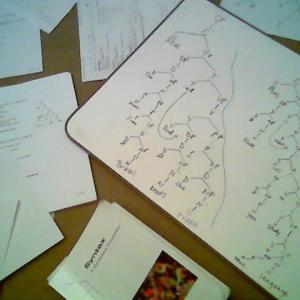Linguistics S-lab meeting: Masha Polinsky (LING/LSC)
Zoom link: https://umd.zoom.us/j/95795510131
The syntax of antipassives
In an antipassive construction (AP), the logical object cannot be expressed as an argument, i.e., direct object. Instead, it is either left unexpressed (e.g., Pat drinks—absolutive AP) or is expressed as an optional adjunct (Pat sipped at her wine—oblique AP). Focusing on the abolutive AP, the main analytical question I will address in this presentation is whether or not the logical object of the AP is syntactically projected. By comparing transitives with an implicit object and antipassives, I show that the logical object in the latter is not projected syntactically. I then present and analyze several existing analyses of antipassives: (i) the functional analysis, which relies on several characteristic properties of the antipassive; (ii) the analysis that adds an extra projection in the verbal spine (AspP or aP); (iii) the analysis that manipulates the verb theta-grid. I present arguments against analyses (i) and (ii) and then suggest how analysis (iii) can be modified to reflect the current empirical results. The core proposal is that antipassivization creates an intransitive verb whose external argument is licensed by v, not Voice; Voice is not projected at all. Thus, antipassives are a subset of intransitive unergatives.
If the proposed analysis is on the right track, it raises several theoretical questions: the nature of what I call the “inverse case filter” and its status in the current theory; the semantic composition of antipassive predicates and adjuncts encoding the logical object; the syntactic buildup of unergatives. If time permits, I will also discuss the difference between absolutive AP, oblique AP, and Agent Focus in Mayan.












